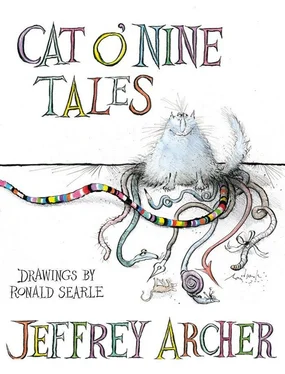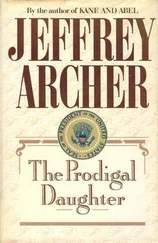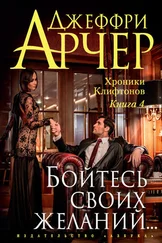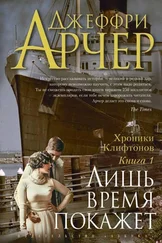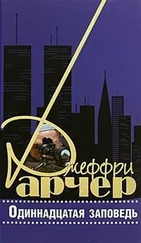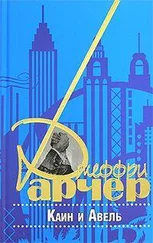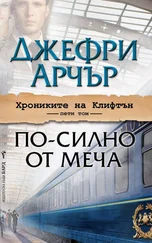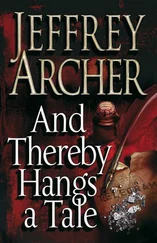Jeffrey Archer
Can O’Nine Tales

While I was incarcerated for two years, in five different prisons, I picked up several stories that were not appropriate to include in the day-to-day journals of a prison diary. These tales are marked in the contents with an asterisk.
Although all nine stories have been embellished, each is rooted in fact. In all but one, the prisoner concerned has asked me not to reveal his real name.
The other three stories included in this volume are also true, but I came across them after being released from prison: in Athens — ‘A Greek Tragedy’, in London — The Wisdom of Solomon’, and in Rome my favourite — ‘In the Eye of the Beholder’.
The Man Who Robbed His Own Post Office

Mr Justice Gray stared down at the two defendants in the dock. Chris and Sue Haskins had pleaded guilty to the theft of £250,000, being the property of the Post Office, and to falsifying four passports.
Mr and Mrs Haskins looked about the same age, which was hardly surprising as they had been at school together some forty years before. You could have passed them in the street without giving either of them a second look. Chris was about five foot nine, his dark wavy hair turning grey, and he was at least a stone overweight. He stood upright in the dock, and although his suit was well worn, his shirt was clean and his striped tie suggested that he was a member of a club. His black shoes looked as if they had been spit-and-polished every morning. His wife Sue stood by his side. Her neat floral dress and sensible shoes hinted at an organized and tidy woman, but then they were both wearing the clothes that they would normally have worn to church. After all, they considered the law to be nothing less than an extension of the Almighty.
Mr Justice Gray turned his attention to Mr and Mrs Haskins’s barrister, a young man who had been selected on the grounds of cost, rather than experience.
‘No doubt you wish to suggest there are mitigating circumstances in this case, Mr Rodgers,’ prompted the judge helpfully.
‘Yes, m’lord,’ admitted the newly qualified barrister as he rose from his place. He would like to have told his lordship that this was only his second case, but he felt his lordship would be unlikely to consider that a mitigating circumstance.
Mr Justice Gray settled back as he prepared to listen to how poor Mr Haskins had been thrashed by a ruthless stepfather, night after night, and Mrs Haskins had been raped by an evil uncle at an impressionable age, but no; Mr Rodgers assured the court that the Haskins came from happy, well-balanced backgrounds and had in fact been at school together. Their only child, Tracey, a graduate of Bristol University, was now working as an estate agent in Ashford. A model family.
Mr Rodgers glanced down at his brief before going on to explain how the Haskins had ended up in the dock that morning. Mr Justice Gray became more and more intrigued by their tale, and by the time the barrister had resumed his place the judge felt he needed a little more time to consider the length of the sentence. He ordered the two defendants to appear before him the following Monday at ten o’clock in the forenoon, by which time he would have come to a decision.
Mr Rodgers rose a second time.
‘You were no doubt hoping that I would grant your clients bail, Mr Rodgers?’ enquired the judge, raising an eyebrow, and before the surprised young barrister could respond Mr Justice Gray said, ‘Granted.’
Jasper Gray told his wife about the plight of Mr and Mrs Haskins over lunch on Sunday. Long before the judge had devoured his rack of lamb, Vanessa Gray had offered her opinion.
‘Sentence them both to an hour of community service, and then issue a court order instructing the Post Office to return their original investment in full,’ she declared, revealing a common sense not always bestowed on the male of the species. To do him justice, the judge agreed with his spouse, although he told her that he would never get away with it.
‘Why not?’ she asked.
‘Because of the four passports.’

Mr Justice Gray was not surprised to find Mr and Mrs Haskins standing dutifully in the dock at ten o’clock the following morning. After all, they were not criminals.
The judge raised his head, stared down at them and tried to look grave. ‘You have both pleaded guilty to the crimes of theft from a post office and of falsifying four passports.’ He didn’t bother to add any adjectives such as evil, heinous or even disgraceful, as he didn’t consider them appropriate on this occasion. ‘You have therefore left me with no choice,’ he continued, ‘but to send you both to prison.’ The judge turned his attention to Chris Haskins. ‘You were obviously the instigator of this crime, and with that in mind, I sentence you to three years’ imprisonment.’ Chris Haskins was unable to hide his surprise: his barrister had warned him to expect at least five years. Chris had to stop himself from saying, thank you, my lord.
The judge then looked across at Mrs Haskins. ‘I accept that your part in this conspiracy was possibly no more than an act of loyalty to your husband. However, you are well aware of the difference between right and wrong, and therefore I shall send you to prison for one year.’
‘My lord,’ protested Chris Haskins.
Mr Justice Gray frowned for the first time. He was not in the habit of being interrupted while passing sentence. ‘Mr Haskins, if it is your intention to appeal against my judgement—’
‘Certainly not, my lord,’ said Chris Haskins, interrupting the judge for a second time. ‘I was just wondering if you would allow me to serve my wife’s sentence.’
Mr Justice Gray was so taken aback by the request that he couldn’t think of a suitable reply to a question he had never been asked before. He banged his hammer, stood up and quickly left the courtroom. An usher hurriedly shouted, ‘All rise.’
Chris and Sue first met in the playground of their local primary school in Cleethorpes, a seaside town on the east coast of England. Chris was standing in a queue waiting for his third of a pint of milk — government regulation for all schoolchildren under the age of sixteen. Sue was the milk monitor. Her job was to make sure everyone received their correct allocation. As she handed over the little bottle to Chris, neither of them gave the other a second look. Sue was in the class above Chris, so they rarely came across each other during the day, except when Chris was standing in the milk queue. At the end of the year Sue passed her eleven-plus and took up a place at the local grammar school. Chris was appointed the new milk monitor. The following September he also passed his eleven-plus, and joined Sue at Cleethorpes Grammar.
They remained oblivious to each other throughout their school days until Sue became head girl. After that, Chris couldn’t help but notice her because at the end of morning assembly she would read out the school notices for the day. Bossy was the adjective most often trotted out by the lads whenever Sue’s name came up in conversation (strange how women in positions of authority so often acquire the sobriquet bossy , while a man holding the same rank is somehow invested with qualities of leadership).
Читать дальше
